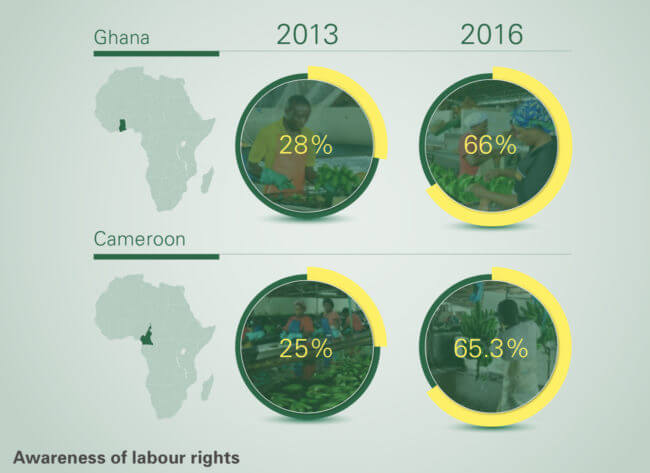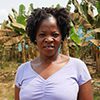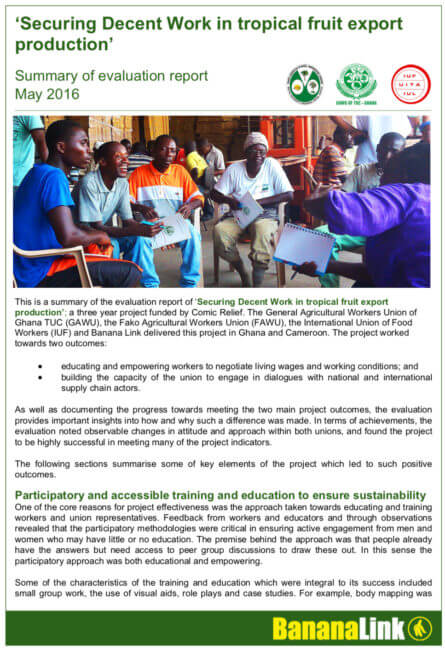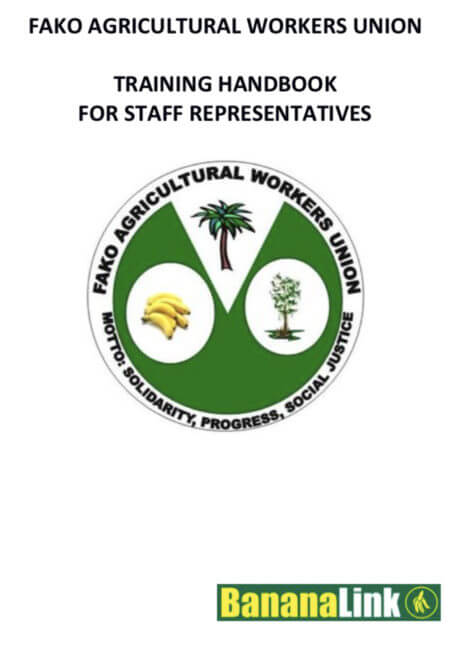Poor Wages, Debt, Long Hours & Hazardous Working Conditions
Bananas constitute the fifth largest export earner for Cameroon, while Ghana has only developed a commercial banana and pineapple industry in the past couple of decades. Both countries export to Europe, mainly to France and the UK.
Workers on plantations in both countries suffer from low wages that don’t meet their basic living costs, causing poverty and leading many into spiraling debt, while working long hours in hazardous conditions, with poor protection from illness and injury.
Initial project
To address these problems, between 2013 and 2016, Banana Link worked with General Agricultural Workers Union of Ghana (GAWU) and the Fako Agricultural Workers Union (FAWU) in Cameroon to educate and empower workers and their unions to negotiate living wages and improved conditions on banana and pineapple plantations.
Research conducted in both countries during the project demonstrated measurable benefits in five important aspects of workers’ lives: income, working hours, labour rights, work-related accidents and provision of Personal Protective Equipment (PPE).
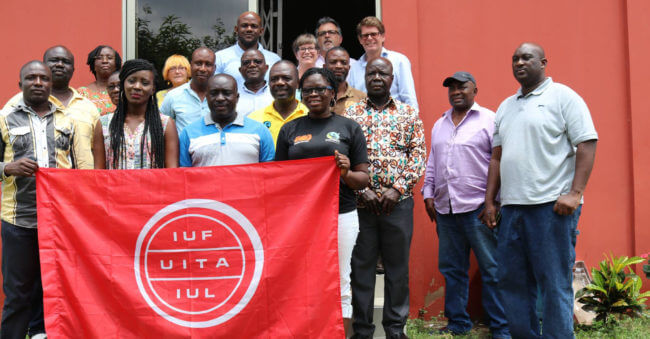
Continuing activities
Following the initial project, Banana Link has continued to work with the International Union of Foodworkers in Africa to empower workers, including improving and increasing women’s employment and rolling out training on the Banana Occupational Health & Safety Initiative (BOHESI).




